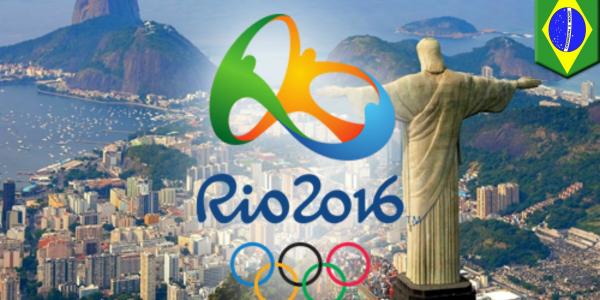In August, some of the world’s best athletes will be taking the international stage in Rio de Janeiro, Brazil, at the onset of the 2016 Summer Olympic Games. For some, the Olympics are as big as it gets – sports media tends to cover sports like swimming, gymnastics, and track and field once every four years. But for many of the most popular sports, the Olympics are a distraction – NBA stars Stephen Curry and LeBron James have both announced they will not be on Team USA in 2016, and international soccer star Lionel Messi has similarly announced that he will not take the field for Argentina in Brazil.
Even if some of the highest profile American and international athletes will not be in Rio in August, it would be wildly inaccurate to say that the Olympics are irrelevant. According to Noah Cohan, a lecturer in American Culture Studies, the growing field of Sports Studies considers the Olympics to be an essential part of the argument that athletic events are politically significant.
“The Olympics, more than any other sporting event, lay bare the political manifestations of athletics, and how important sports can be for economics,” Cohan says. “You march with your flag and stand before your national anthem. World leaders are in attendance, and countries, which maybe can’t afford them, invest billions of dollars in building stadiums and marketing their country.” Cohan says that the national pride this creates unites a country’s Olympic athletes under an “umbrella of nationalism.”
This “umbrella of nationalism” is a central consideration when discussing the Olympic games from an academic point of view.
“How we choose to support athletes, whether they’re under the banner of our nation or not, is something that needs to be considered when discussing Olympic fandom,” says Cohan.
In an increasingly globalized world of sports, international fandom complicates the politics of the Olympic games.
Take, for example, Spain’s basketball team, which could have six NBA players on its roster. There’s also the United States has only won a single medal in men’s tennis since Andre Agassi won gold in 1996 – who are we to root for in Men’s Tennis, when only one American is currently ranked in the top-20 by the Association of Professional Tennis? These questions matter, because they represent a discontinuity between non-Olympic fandom and nationalistic tendencies.
These nationalistic tendencies are, perhaps, most visible for the nation hosting the games. But these nations are not always democratic – or even politically stable.
“The types of governments that have recently put on the Olympics, and how they’ve accomplished their duties as hosts and allocated funds are deeply problematic and must be considered,” says Cohan, alluding to the human rights violations currently being levied against Brazil, a country whose credibility as host is a topic of international debate.
The recent political unrest in Brazil is just one of the outcomes of the country’s worst economic crisis since the 1930s, and led to the impeachment of its president in May. The political awareness that the games have given Brazil is noteworthy, though potentially politically harmful, as the country attempts to regain stability while displaying a false image of nationalistic modernity to the outside world.
All of this leaves us with a few questions: in an era of globalized fan interests, who are we to root for? And how can, and should, a country project nationalism when, in reality, it is amidst political turmoil? These are among the many questions that Sports Studies seeks to generate discourse on – even if there are no definite answers.





